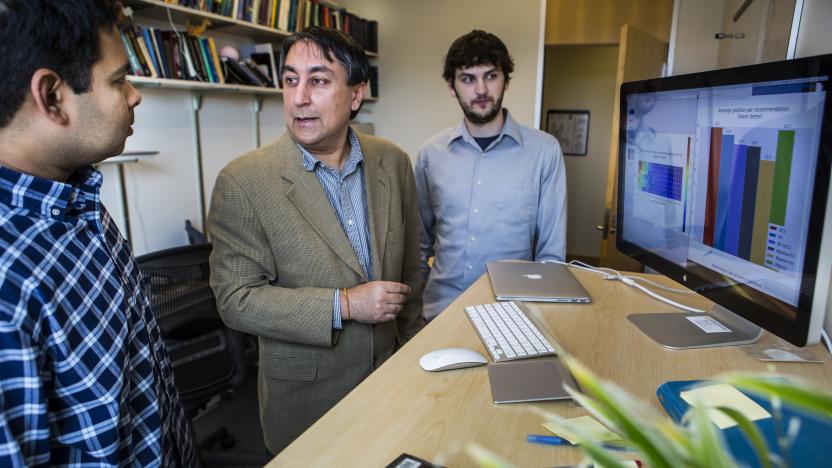undergraduate
Latest

Carnegie Mellon offers undergrad degree in artificial intelligence
Carnegie Mellon has announced one of the first* AI-focused undergraduate degrees in the US to address the increasing demand for specialists in the field. Tech giants like Google have been ramping up their artificial intelligence efforts in recent years, since they've become integral in the development of machine learning techniques used for their products. Mountain View, for instance, recently showed off a talking AI assistant so human-like that the company had to design a feature to make sure it identifies itself as a robotic assistant before speaking. The university is perhaps the best institution to offer an undergrad degree in AI, considering it ranked first in a recent study of the top AI graduate programs in the country.

Even your academic advisor might one day be a robot
We Google things we're too lazy to remember or ask another human. We've become accustomed to asking Siri and Cortana about the weather. The current generation of artificial intelligence can pull facts from the web, keep track of your appointments and even crack jokes. What if there were a virtual assistant to help you make real-life decisions, like whether you should start a brewery or go to business school? Project Sapphire, a collaboration between IBM and the University of Michigan, is aimed at building an artificially intelligent academic advisor that guides undergraduate students through their course options, helps pick extracurricular activities and eventually dishes out advice on their careers.

AP, Google offer $20,000 scholarships to aspiring tech journalists, we go back to school
Love technology? Love journalism? Well, the AP-Google Journalism and Technology Scholarship program might be right up your alley. The initiative, announced earlier this week, will offer $20,000 scholarships to six graduate or undergraduate students working toward a degree in any field that combines journalism, new media and computer science. Geared toward aspiring journalists pursuing projects that "further the ideals of digital journalism," the program also aims to encompass a broad swath of students from diverse ethnic, gender, and geographic backgrounds. Applications for the 2012-2013 school year are now open for students who are currently enrolled as college sophomores or higher, with at least one year of full-time coursework remaining. Hit up the source link below to apply, or head past the break for more information, in the full presser.

AMO Arm pneumatic prosthetic does mind-control on the cheap
We're no strangers to amputees moving stuff with their minds -- for that matter, a thought-controlled prosthetic isn't really new to us, either -- but the pneumatic arm you see here isn't like other intelligent limbs. Unlike most mind-operated prosthesis, the Artificial Muscle-Operated (AMO) Arm doesn't require invasive surgery, and according to its inventors, it costs a quarter of the price to make. Here's how the thing works: the host human wears a headset that sends brain signals to a chip in the arm that then matches those signals to a database of related actions, triggering a series of pneumatic pumps and valves to move the limb. Thus, if the wearer thinks 'up,' the arm moves up. The AMO Arm's creators, a pair of undergraduate biomed students, say that not only is their invention a steal to produce, but it also takes just minutes to acclimate to, which has us wondering, do you have to be missing an arm to get a hold of one of these things? You know, we can always use an extra hand. Full PR after the break.

College students help NASA by crashing satellite into the Arctic
Our idea of a great evening in college was listening to some Operation Ivy and drinking a few brews before heading home to secretly pore over A Literature of Their Own. Other college kids, however, have more on their plates than that, such as those who currently work at LASP -- the Laboratory for Atmospheric and Space Physics. LASP is partially staffed by undergraduates at Colorado University, providing a low-cost alternative to more experienced labor, while giving students the kind of hands-on experience not normally available to them. One recent task, for instance, involved the crashing of ICESat, a NASA decommissioned satellite, into the Arctic. Most of it burned up in the atmosphere, while some smaller parts made their way to the Barents Sea. The mission was considered successful and, as for the students who carried it out? Well, let's just say that their nerd credentials are now rock solid.



